Contents
- 1 Introduction to Guide to Buying a Tent
- 2 Types of Tents
- 3 Factor Affecting while buying
- 4 Additional Features and Accessories
- 5 Tents Packing and Maintenance
- 6 Conclusion
- 7 Unique FAQs
- 7.1 Q: Can I use a camping tent for other outdoor activities besides camping?
- 7.2 Q: Are all tents waterproof?
- 7.3 Q: How do I determine the right size of tent for my needs?
- 7.4 Q: What is the difference between three-season and four-season tents?
- 7.5 Q: How do I care for and maintain my tent to prolong its lifespan?
Introduction to Guide to Buying a Tent
When embarking on outdoor adventures, one of the most critical pieces of equipment is a tent. Whether you’re a seasoned camper or a novice explorer, finding the right tent can significantly impact your outdoor experience. With a myriad of options available in the market, choosing the perfect tent might seem overwhelming. However, fear not! We’re here to guide you through the process and ensure you make an informed decision.
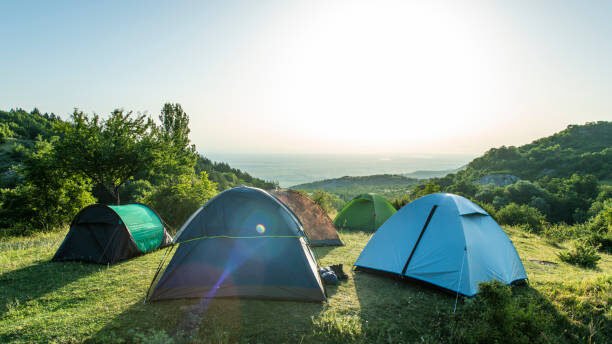
Types of Tents
Certainly! Here’s the breakdown of different types of tents:
Dome Tents:
Dome tents are characterized by their rounded shape, resembling a dome. They are popular for their simple setup and sturdy construction. These tents usually have flexible poles that cross over each other to form the dome shape, providing stability against wind and rain. Dome tents are versatile and come in various sizes, making them suitable for solo campers, families, or small groups.
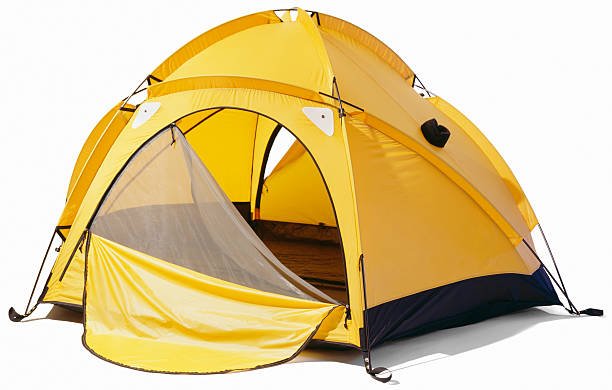
Cabin Tents:
Cabin tents are spacious, with vertical walls that maximize interior space. They often feature multiple rooms or dividers, providing privacy and separate sleeping areas for larger groups or families. Cabin tents are ideal for car camping, as they offer ample headroom and comfort for extended stays. However, their bulkier design may require more effort to set up compared to other tent types.
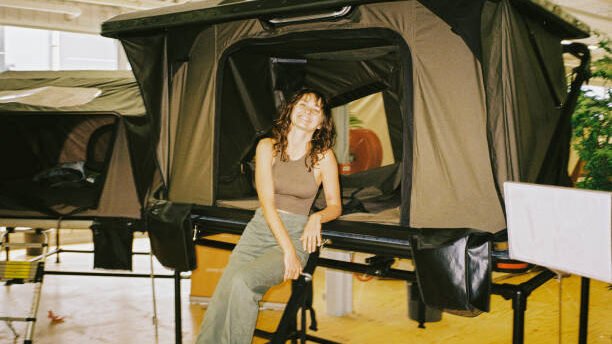
Backpacking Tents:
Backpacking tents are designed for lightweight and compact travel, making them perfect for backpackers and hikers. These tents prioritize portability and durability, with lightweight materials and streamlined designs to minimize weight without sacrificing protection from the elements. Backpacking tents typically feature a simple pole structure and a single-wall or double-wall construction to balance weight and weather resistance.
Pop-Up Tents:
Pop-up tents, also known as instant tents, are designed for quick and effortless setup. These tents feature a collapsible frame that automatically expands into shape when released, eliminating the need for traditional tent poles and complex assembly. Pop-up tents are ideal for spontaneous camping trips or events where convenience and speed are paramount. However, they may sacrifice some durability and weather resistance compared to other tent types.
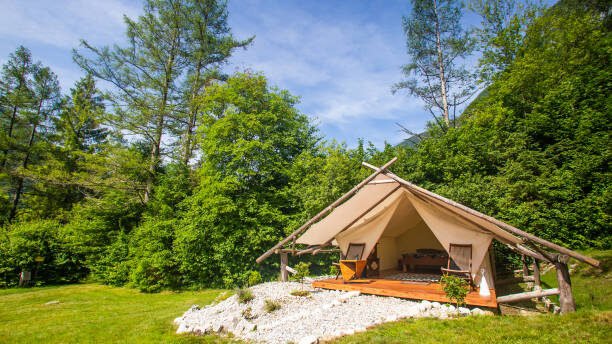
Factor Affecting while buying
Tent Capacity and Size
Determining the appropriate size of your tent is crucial for a comfortable camping experience. Whether you’re camping solo or with a group, selecting a tent with adequate capacity ensures ample space for sleeping and storing gear. Consider factors such as the number of occupants, sleeping arrangements, and storage needs when choosing the size of your tent.
Materials and Construction
The durability and performance of a tent largely depend on its materials and construction. From rugged tent fabrics to sturdy poles and stakes, understanding the components of a tent can help you make an informed decision. Look for high-quality materials that offer weather resistance and durability to withstand the elements during your outdoor adventures.
Weather Resistance and Seasonality
Choosing a tent designed to withstand various weather conditions is essential for a comfortable camping experience. Whether you’re camping in the sweltering heat of summer or the frigid temperatures of winter, selecting the right tent for the season is paramount. Consider factors such as ventilation, insulation, and waterproofing when choosing a tent suitable for your intended use.
Ventilation and Airflow
Proper ventilation is key to preventing condensation buildup and maintaining a comfortable interior temperature inside your tent. Look for tents equipped with mesh panels, windows, and vents to promote airflow and reduce humidity. Additionally, consider features such as adjustable vents and vestibules to customize ventilation according to changing weather conditions.
Setup and Ease of Use
For novice campers, ease of setup and use are essential considerations when choosing a tent. Opt for tents equipped with intuitive design features and user-friendly setup mechanisms for hassle-free assembly. Quick-setup tents with color-coded poles and minimal components are ideal for beginners looking to streamline the camping experience.
Additional Features and Accessories
Beyond basic shelter, many tents come with additional features and accessories to enhance comfort and convenience. From integrated rainflies and gear lofts to storage pockets and vestibules, consider the supplementary features that align with your camping needs. Investing in accessories such as footprints and gear organizers can further optimize your camping setup.
Budget Considerations
Finding the perfect tent that balances quality and affordability is essential for budget-conscious campers. While high-end tents offer premium features and durability, budget-friendly options can provide adequate shelter without breaking the bank. Consider factors such as material quality, construction, and brand reputation when evaluating the cost-effectiveness of a tent.
Reviews and Recommendations
Before making a purchase, researching and reading reviews from fellow campers can provide valuable insights into the performance and reliability of a tent. Seek recommendations from experienced outdoor enthusiasts and browse online forums and review sites for firsthand experiences and recommendations. Additionally, consider factors such as warranty coverage and customer support when assessing the credibility of a tent brand.
Buying from Reputable Brands and Retailers
When purchasing a tent, buying from reputable brands and retailers ensures quality assurance and reliable customer service. Look for well-established tent brands known for their commitment to innovation, durability, and customer satisfaction. Similarly, choose reputable retailers with a track record of delivering high-quality outdoor gear and accessories.
Warranty and Customer Support
A tent’s warranty coverage and customer support services are crucial factors to consider when making a purchase. Opt for tents backed by comprehensive warranties that protect against manufacturing defects and material failures. Additionally, prioritize brands that offer responsive customer support and hassle-free warranty claims to address any issues that may arise during your camping adventures.
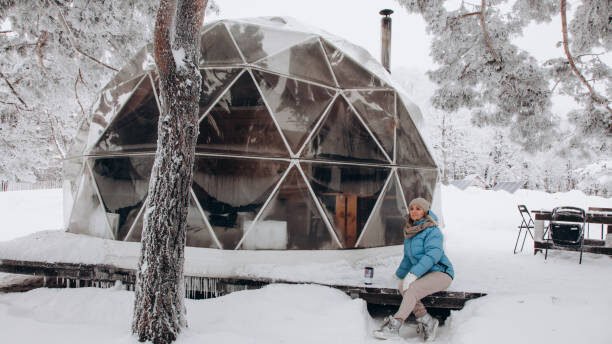
Tents Packing and Maintenance
Packing and Storage Tips
Properly packing and storing your tent is essential for extending its lifespan and maintaining its performance. Follow manufacturer guidelines for folding and storing your tent to prevent damage and deformation. Additionally, invest in a durable tent bag or storage sack to protect your tent during transport and storage.
Tent Maintenance and Care
Regular maintenance and care are essential for preserving the integrity and performance of your tent. Clean your tent after each use to remove dirt, debris, and stains that can compromise its waterproofing and durability. Repair minor damages promptly using patch kits and sealants to prevent further deterioration and ensure long-lasting reliability.
Conclusion
In conclusion, purchasing a tent for your outdoor adventures is an exciting journey that requires careful consideration and research. By understanding your specific needs, preferences, and budget constraints, you can find the perfect tent that offers comfort, durability, and performance. Remember to prioritize features such as weather resistance, ventilation, and ease of setup to enhance your camping experience.
Unique FAQs
Q: Can I use a camping tent for other outdoor activities besides camping?
Q: Are all tents waterproof?
Q: How do I determine the right size of tent for my needs?
Q: What is the difference between three-season and four-season tents?
Q: How do I care for and maintain my tent to prolong its lifespan?

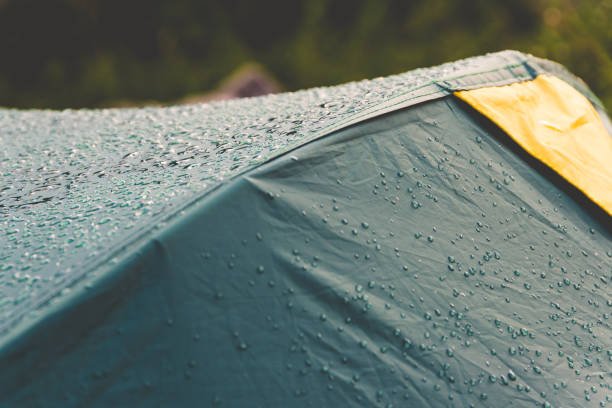
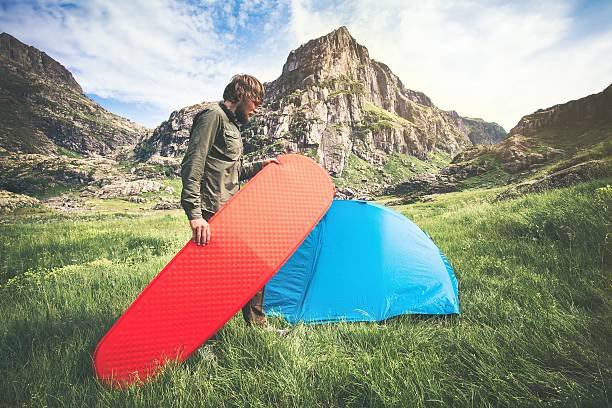
Pingback: Nylon vs Polyester Tents: Choose the Best for Your Camping Trip 1